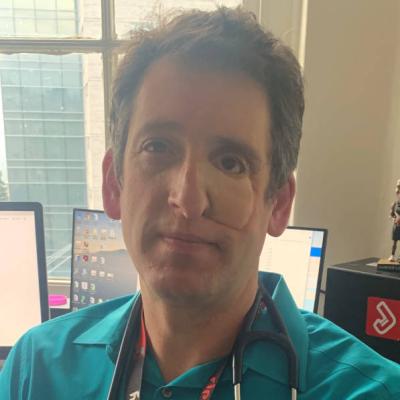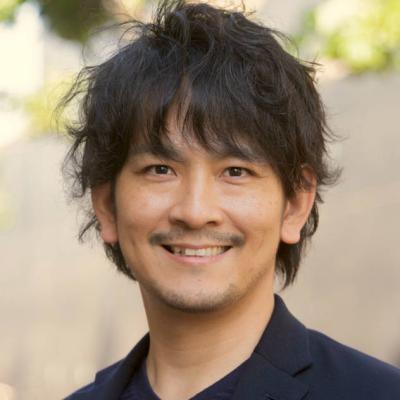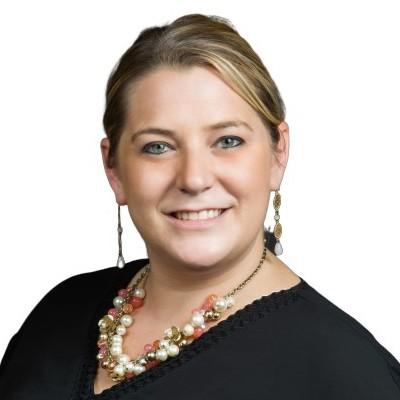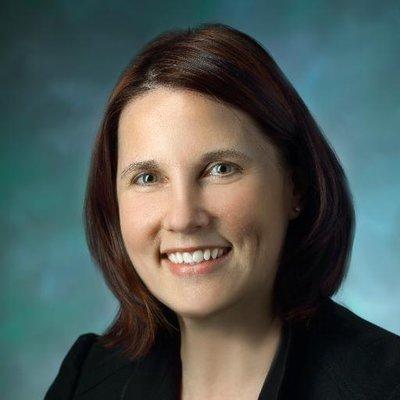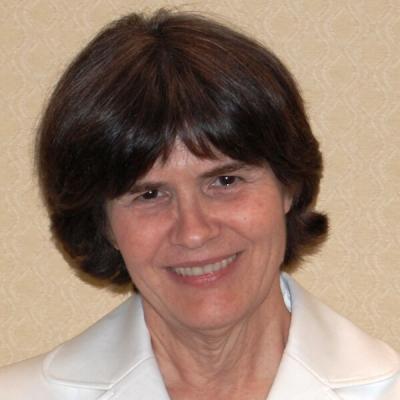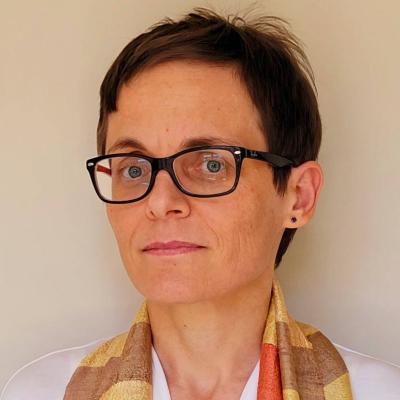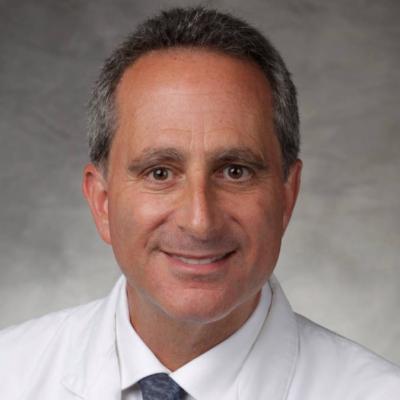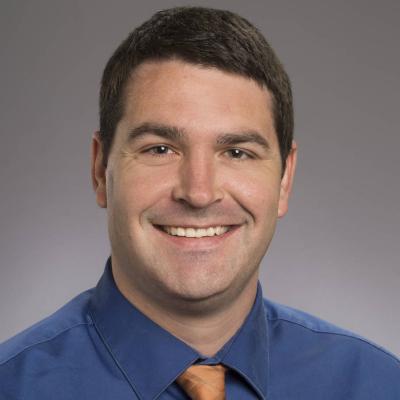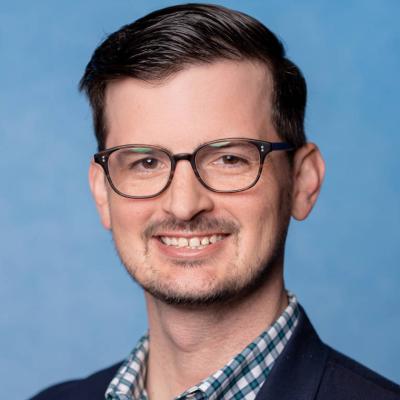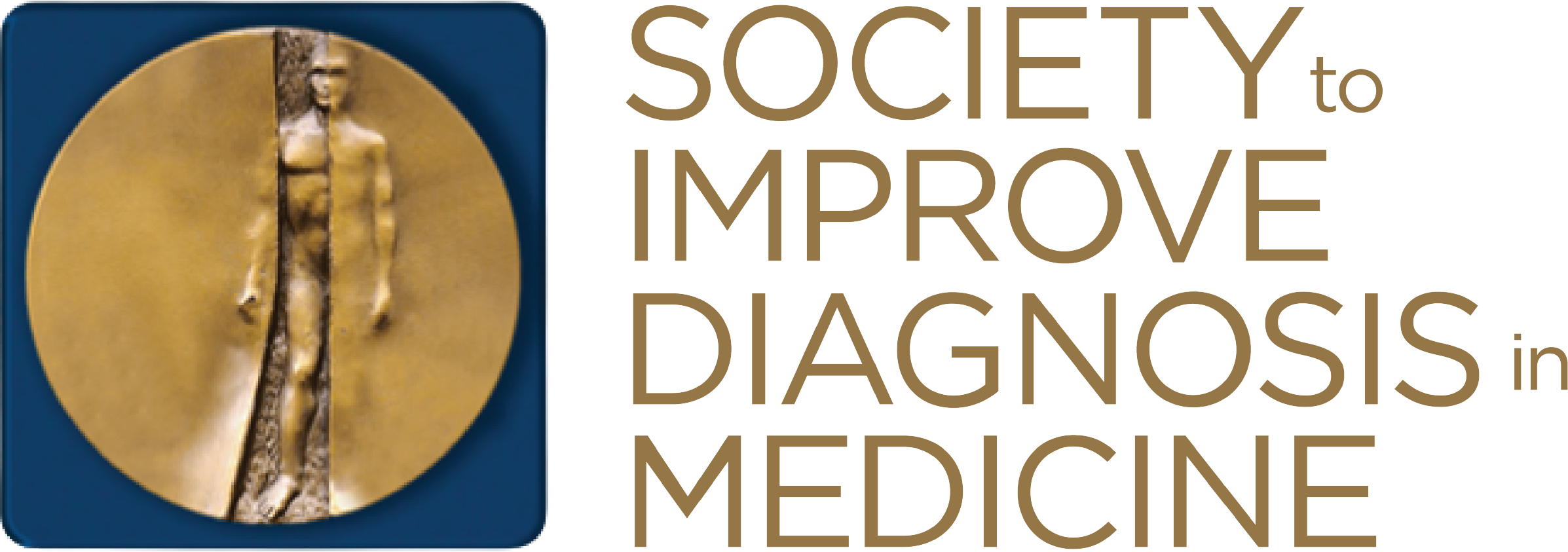Oral Sessions 1: The Leading Edge of Research Towards Diagnostic Excellence
- x
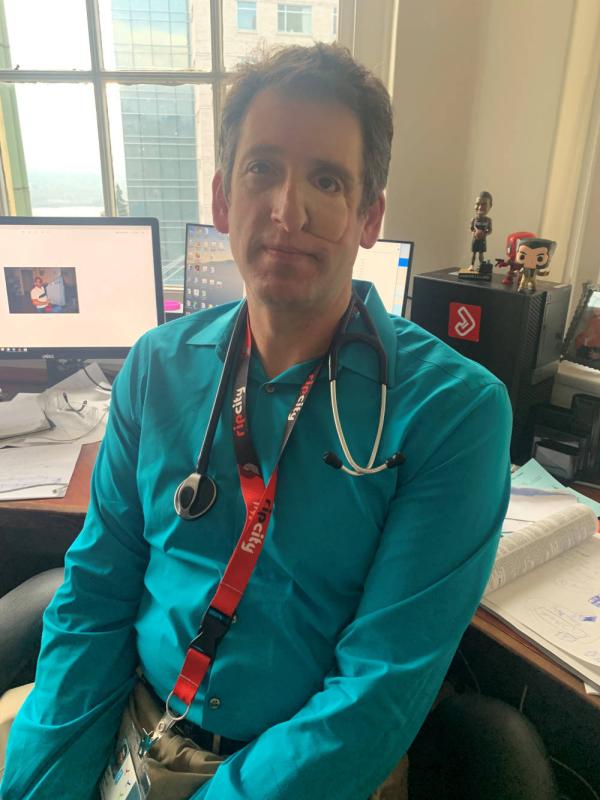
Jeffrey Gold, MD
Professor of MedicineOregon Health & Science University
Portland, ORDr. Gold began his training and career in New York, going to NYU Medical School then Columbia Presbyterian for residency and then back to NYU for fellowship in Pulmonary Critical Care. After completing fellowship Dr. Gold joined the faculty at NYU as a translational researcher in sepsis and septic shock. While serving in the role, Dr. Gold also served as Director for Critical Care services for Bellevue hospital. Dr. Gold was recruited to OHSU in 2005 where he received a number of grants focus on the host immune response in sepsis, pneumonia and cystic fibrosis. In 2011, Dr. Gold’s research focus shifted toward understanding the usability of Electronic Health Records in the ICU, specifically focused on the ability to use simulated patient charts to create high-fidelity EHR training exercises as well as provide a test bed to objectively assess usability of the EHR. This infrastructure has led to a number of publications and Dr. Gold has received grants from AHRQ to conduct this research. Recently, Dr. Gold has expanded this work to include understanding how all member of the interprofessional team (Nurses, pharmacists physicians etc….) interact with the EHR during ICU rounds. This work has expanded to use of EHR based simulation for training of medical scribes and now to understand the role the EHR plays in the genesis of diagnostic error in ambulatory care. Dr. Gold currently is a Professor of Medicine at Oregon health & Sciences University. He has held numerous administrative positions including program director for OHSUs Pulmonary Critical Care and Critical Care fellowships (2010-2017) and Director of Simulation for OHSU (2012-2018). Dr Gold currently serves as Vice Chair for Quality and Safety for the Department of Medicine, serves as the Director for the OHSU Health Disparities Reduction Core and Director for Advanced EHR Training and Evaluation. With these roles, Dr. Gold is integrating patient safety, EHR usability, training and equity into a Learning Health System ecosystem at OHSU.
- x

Sundas Khan, MD
Quantitative MethodologistBaylor College of Medicine
Houston, TXSundas Khan, MD, is a Quantitative Methodologist at the Center for Innovations in Quality, Effectiveness, and Safety, a joint research lab between Michael E. DeBakey Veterans Affairs Medical Center and Baylor College of Medicine. Her research expertise lies in implementation of evidence-based medicine, adaptive clinical decision support, and developing electronic tools for patients and providers based on user-centered design. In her current role, Dr. Khan is responsible for informing research study design, including quantitative and qualitative research methodologies.
- x

Viralkumar Vaghani, MBBS, MPH, MS
BiostatisticianMichael E. DeBakey Veterans Affairs Medical Center and Baylor College of Medicine
Houston, TXViralkumar Vaghani is a Biostatistician at the Center for Innovations in Quality, Effectiveness, and Safety (IQuESt) VA Houston and Baylor College of Medicine. His research interests include improving patient safety, developing electronic trigger algorithms to measure diagnostic errors, and application of machine learning to improve diagnosis in medicine. He is a former SIDM fellow of Diagnostic Excellence.
- x
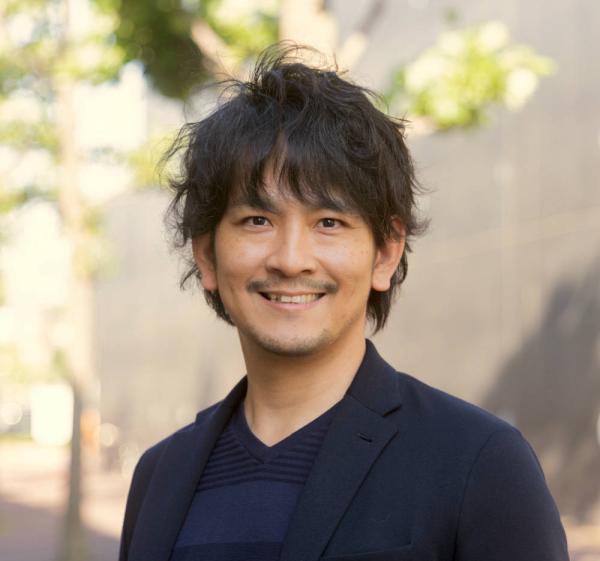
Takashi Watari, MD, MHQS, PhD
Associate ProfessorGeneral Medicine Center, Shimane University Hospital
Izumo City, Japan - x

Bethany Wickramasinghe, BSc
Psychology PhD StudentUniversity College London
London, EnglandBethany is undertaking a mixed methods PhD at University College London exploring the utility of prescriptions data in improving early cancer detection in primary care. She is funded by the Medical Research Council Doctoral Training Programme and works with UCL’s Epidemiology of Cancer Healthcare Outcomes (ECHO) group. Bethany is a data scientist with a background in population health research. Prior to commencing her PhD, she worked in partnership with the National Cancer Registration and Analysis Service (NCRAS) at Public Health England and the NHS’ Transforming Cancer Services Team for London (TCST). Bethany is particularly interested in patient and healthcare factors that can signal earlier diagnostic opportunities, specifically prescriptions information in the context of non-specific symptoms and cancer. Through the course of her PhD, she hopes to reveal viable mechanisms to better target healthcare interventions.
- x

Andrew Zimolzak, MD, MMSc
Assistant ProfessorBaylor College of Medicine
Houston, TXAndrew Zimolzak is an assistant professor at Baylor College of Medicine, department of medicine, section of health services research; and the Center for Innovations in Quality, Effectiveness and Safety (IQuESt). Dr. Zimolzak has studied the secondary use of routinely collected medical data for 10 years. He has direct experience with the retrieval and analysis of data from electronic medical records from multiple health care systems, as well as medical insurance claims. This work has been applied to physicians’ delayed follow-up of patient test results, diagnostic errors in the emergency department, randomized trials of medications for hypertension and heart failure, pharmacogenomics, lung cancer genomic precision medicine, kidney failure prediction, and outcome prediction in COVID-19. Dr. Zimolzak has practiced general internal medicine in urgent care and inpatient hospital settings for over ten years. In addition to research efforts, he is a teaching hospitalist at the Michael E. DeBakey VA Medical Center in Houston. His interests include deriving accurate phenotype information from medical records, machine learning for improved efficiency of data cleaning, and research code reproducibility and sharing. He has been funded by the Gordon and Betty Moore Foundation, and the Agency for Healthcare Research and Quality.
- x

Robert El-Kareh, MD, MPH, MS
Associate Professor of MedicineUniversity of California, San Diego Health
San Diego, CARobert El-Kareh, MD, MPH, MS is an Associate Professor of Medicine within the Division of Biomedical Informatics at the University of California, San Diego. He also serves as Associate Chief Medical Officer for Transformation and Learning and leads the Clinical Decision Support Oversight Committee at UC San Diego Health. Clinically, he is a practicing hospital medicine physician and is board-certified in Clinical Informatics.
Dr. El-Kareh's primary academic activities involve the use of clinical data to improve diagnostic safety in healthcare. Dr. El-Kareh has active research and performance improvement projects related to detection and evaluation of inpatient diagnostic delays, systematic feedback of patient outcomes to frontline providers and tools to guide the appropriate use of diagnostic tests.
Authors will present peer-reviewed abstracts of the latest innovations in diagnostic safety research, practice improvement, and education, and will answer questions from the audience.
Learning Objectives:
- Describe new and innovative research related to diagnostic safety;
- Discuss innovative practice improvement strategies for improving diagnosis in medicine;
- Identify high-quality medical education methodologies to improve clinical reasoning and reduce diagnostic error.
Oral Abstract Titles and Presenting Authors:
- Qualitative Analysis of a National Patient Safety Event Database to Understand Contribution of Electronic Health Records to Diagnostic Error – Jeffrey Gold, Oregon Health & Science University
- The Current State of Science of Diagnostic Safety: Implications for Research, Policy, and Practice – Sundas Khan, Baylor College of Medicine
- A Portfolio of E-Triggers to Measure Multiple Types of Diagnostic Errors in Emergency Care – Viralkumar Vaghani, Michael E. DeBakey Veterans Affairs Medical Center and Baylor College of Medicine
- Comparison of Performances of ChatGPT and GPT-4 in the Japanese National Medical Examination – Takashi Watari, General Medicine Center, Shimane University Hospital
- How Does Prescribed Medication Influence How Patients Appraise and Seek Help for Ongoing Symptoms? – Bethany Wickramasinghe, University College London
- Application of a Digital Quality Measure for Cancer Diagnosis in Epic Cosmos – Andrew Zimolzak, Baylor College of Medicine
Partnering with Patients in Diagnostic Safety – Embedding Health Equity
- x
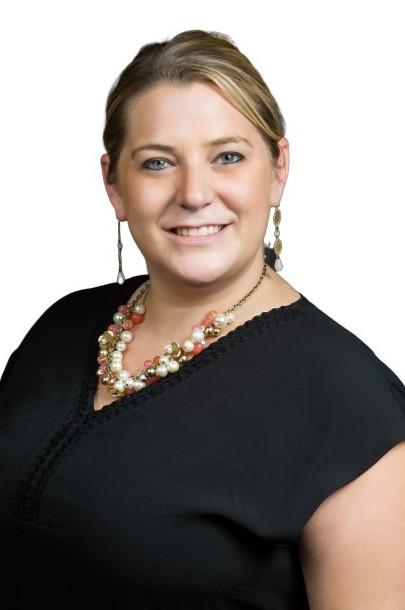
Kristen Miller, DrPH, MSPH, MSL, CPPS
Senior Scientific DirectorMedStar Health, National Center for Human Factors in Healthcare
Washington, D.C.Kristen Miller, DrPH, MSPH, MSL, CPPS is the Senior Scientific Director of the MedStar Health National Center for Human Factors in Healthcare, Associate Professor of Emergency Medicine at Georgetown University School of Medicine, and Affiliate Faculty at Georgetown Innovation Center for Biomedical Informatics. Dr. Miller is a clinically oriented human factors researcher focusing on medical decision making, diagnostic safety, informatics, and the assessment of medical interventions with an emphasis on usability, human error, and patient safety. Her portfolio includes federally funded work from the National Institutes of Health, Agency for Healthcare Research and Quality, Office of the National Coordinator for Health Information Technology, Centers for Disease Control and Prevention, Department of Defense, National Science Foundation, Society to Improve Diagnosis in Medicine, and Pew Charitable Trust. Her research interests also include an evaluation of the ethical, legal, and policy implications of health information technology and digital health tools.
- x
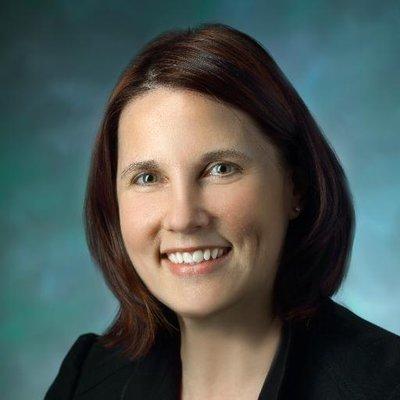
Kelly Smith, PhD, MSc.
Associate Professor, Program Director, Health Systems Research – Outcomes & EvaluationUniversity of Toronto, Institute of Health Policy, Management and Evaluation
Toronto, Ontario, Canada - x

Traber Giardina, PhD
Assistant ProfessorBaylor College of Medicine and Houston VA
Houston, TXDr. Giardina is a patient safety researcher and assistant professor at Baylor College of Medicine and the Center for Innovations in Quality, Effectiveness and Safety at the Michael E. DeBakey VA Medical Center. Dr. Giardina’s work focus on patients’ experiences of diagnostic error and exploring methods to leverage health IT to improve patient engagement in safety.
- x
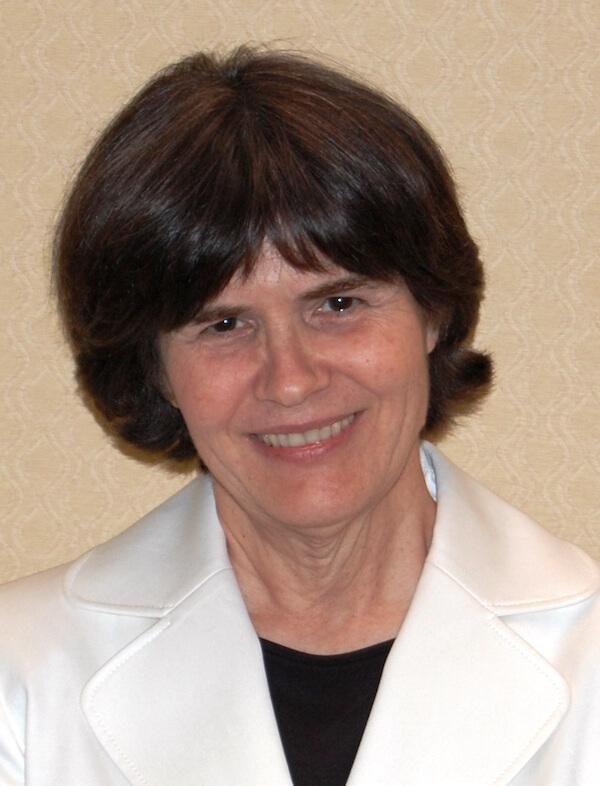
Helen Haskell, MA
Patient AdvocateMothers Against Medical Error
Columbia, SCHelen Haskell is president of the nonprofit patient organizations Mothers Against Medical Error and Consumers Advancing Patient Safety. She is an Institute for Healthcare Improvement senior fellow, a board member of the Patient Safety Action Network and the International Society for Rapid Response. She is a recently retired board member of the Institute for Healthcare Improvement and the Accreditation Council for Graduate Medical Education and a previous chair of the Patient Engagement Committee of the Society to Improve Diagnosis in Medicine and of the WHO Patients for Patient Safety Advisory Group. She continues to work with the World Health Organization on patient safety and patient engagement and with SIDM and AHRQ on diagnostic issues. Helen’s goal since the medical error death of her young son Lewis has been to enhance the patient contribution to safety and quality in healthcare. She has written or co-authored dozens of articles, book chapters, and educational materials on patient engagement in safety, quality, and diagnosis, including a co-edited textbook of case studies from the patient perspective. Her son Lewis’s story has been featured in educational programs and videos including Transparent Health’s full-length Lewis Blackman Story. Helen holds a bachelor's degree in Classical Studies from Duke University and a master’s degree in Anthropology from Rice University in the United States.
Workshop presenters will describe the “Patient Partnered Diagnostic Center of Excellence (PPDCE)”, an AHRQ funded center that believes patients and families play a pivotal role in the diagnostic process. We are co-designing solutions with patient partners that allow patients to be more proactive and involved in their own healthcare. We examine diagnostic safety using a Safety I and II lens from the patient’s experience of the diagnostic journey. This workshop includes two focus areas of diagnostic improvement: (1) Safety I error detection and prevention to decrease error frequency and (2) Safety II methods of resilience to improve safer care. Our aggressive attention to the inclusion of equity seeking populations in codesign and evaluation will yield solutions adopted broadly by diverse care settings, patients, and the clinicians that serve them. The actionable research strategies discussed in this workshop align with SIDM’s role in the pursuit of improved diagnosis for patients in an effort to prevent resulting patient harms. PPDCE research aligns with SIDM’s strategic plan, specifically in enhancing the impact of patients as partners in diagnostic safety (people), developing solutions (practice) and rallying organizational support to promote policy-related initiatives (policy).
Learning Objectives:
- Describe diagnostic safety efforts that include patients as partners;
- Discuss key strategies for meaningful patient engagement specifically with marginalized patients;
- Align opportunities to improve diagnostic safety along the NASEM diagnostic process and NIMHD research framework.
The Psychometrically Valid and Reliable TeamSTEPPS® for Improving Diagnosis Team Assessment Tool
- x
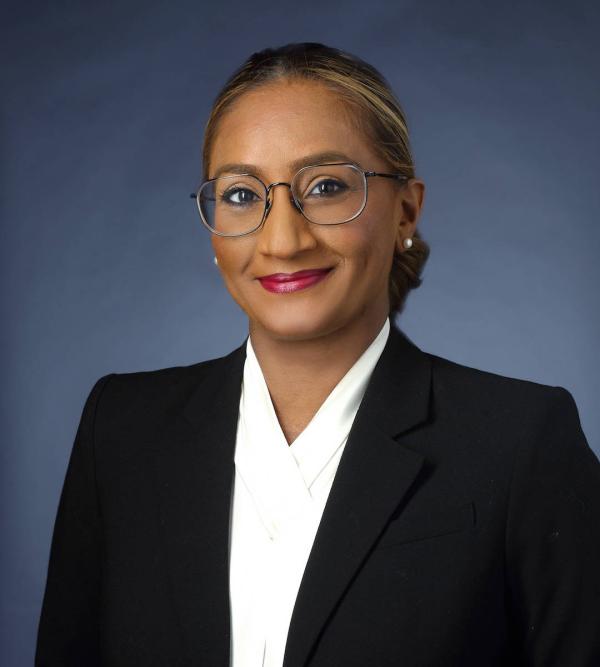
Kisha Ali, PhD, MS
Research ScientistMedStar Health’s Institute for Quality and Safety
Columbia, MDDr. Ali is a Research Scientist at the MedStar Institute for Quality and Safety. Dr. Ali helped to develop the TeamSTEPPS® for Improving Diagnosis Resource for the Agency for Healthcare Research and Quality, and has taught the TeamSTEPPS® Master Trainer course in the U.S. and internationally. She has technical expertise in study design methodology, mixed-methods evaluation, implementation science, content development, and training clinical teams. Her work is in patient safety and quality improvement, with a focus is on improving rural healthcare. Dr. Ali is also an Associate Professor in the Department of Health Policy and Management at the Johns Hopkins University Bloomberg School of Public Health.
- x

Christine Goeschel, ScD, MPA, MPS, RN, FAAN
Assistant Vice PresidentMedstar Institute for Quality and Safety
Columbia, MDDr. Christine (Chris) Goeschel is a health care consultant, teacher, mentor, and implementation scientist who recently retired from her role as a system leader at MedStar Health and professor of Medicine at Georgetown University School of Medicine. During her tenure as Assistant Vice President in the MedStar Institute for Quality and Safety (MIQS) and inaugural Director of the Center for Improving Healthcare Diagnosis, Chris focused her research on clinical and administrative leadership to improve the science of health care delivery and on improving diagnostic processes.
Her experience includes diverse health care roles: as a critical care nurse, a hospital executive, as founder and first executive for the Michigan Health & Hospital Association Keystone Center for Patient Safety and Quality, and as an implementation scientist/quality and patient safety researcher. Dr. Goeschel was Michigan PI on groundbreaking research to reduce bloodstream infections in intensive care units from 2003-2005, ("Keystone ICU"). From 2006 until 2013 she was an assistant professor in the schools of Medicine, Public Health and Nursing at Johns Hopkins and an advisor to the World Health Organization Patient Safety Program, where she contributed to large scale improvement projects in Spain, England, and Peru and the Middle East. She was a member of the 2013-2015 "NAM" Committee that produced "Improving Health Care Diagnosis" as part of the IOM Crossing the Quality Chasm series.
Dr. Goeschel served on The U.S. Department of Health and Human Services to the National Advisory Council for Quality and Safety Research (NAC), and for five years on the SIDM National Advisory Committee for the Coalition to Improve Diagnosis. Chris was PI on three unique multi-year awards focused on building diagnostic capacity and improving diagnostic processes to achieve diagnostic excellence. In addition to peer reviewed publications and 12+AHRQ issue briefs (developed by national leaders addressing diverse aspects of diagnostic safety), resources developed during the awards include publicly available tools focused on diagnostic calibration, measurement, patient and family engagement and teamwork.Dr Goeschel continues to teach a required healthcare leadership course at Johns Hopkins and serves on the Board of a multi-hospital system in Michigan.
- x
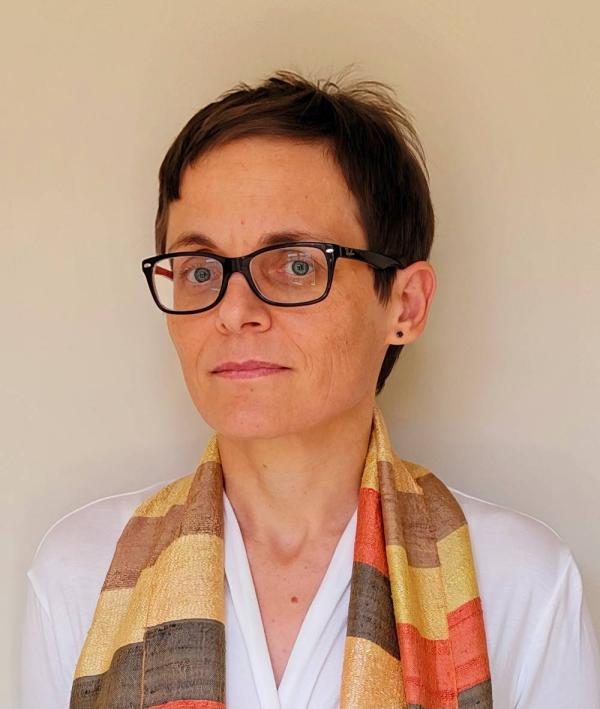
Monika Haugstetter, MHA, MSN, RN, CPHQ
Health Scientist AdministratorUS Department of Health and Human Services (HHS)
Agency for Healthcare Research and Quality (AHRQ)
Center for Quality Improvement and Patient Safety (CQuIPS)
Rockville, MDMonika Haugstetter is a master’s prepared nurse with a Master of Health Administration from Quinnipiac University and a Master of Science in Nursing from Yale University School of Nursing. Her professional focus has been on directing quality improvement projects, managing variety of domestic and international public health and health research programs, facilitating and overseeing patient safety initiatives, development, implementation and monitoring of domestic and international training and education clinical programs, and teaching graduate level nurses. She currently serves as a Health Scientist Administrator at Agency for Healthcare Research and Quality (AHRQ), Center for Quality Improvement and Patient Safety, in the General Patient Safety (GPS) Division. Prior to AHRQ, her positions included a Chief of Clinical Education, US Peace Corps, Office of Health Services, an Adjunct Professor, University of Hartford, College of Education, Nursing and Health Professions teaching graduate level nurses, a Healthcare Quality Improvement Projects Manager, Qualidigm, and a Research Compliance Auditor/Health Advocate, Human Subject Protections Office, University of Connecticut Health Center, among others.
- x
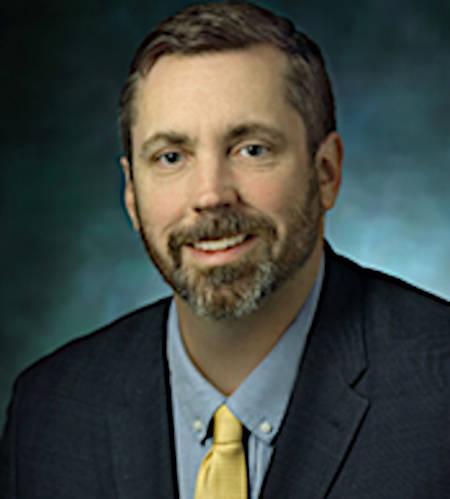
Michael A. Rosen, PhD, MA
Associate ProfessorAnesthesiology and Critical Care Medicine
Johns Hopkins Armstrong Institute for Patient Safety and Quality
Baltimore, MDDr. Rosen is a Human Factors Psychologist and Associate Professor in the Department of Anesthesiology and Critical Care Medicine at the Johns Hopkins University School of Medicine. He is a principal faculty member in the Armstrong Institute for Patient Safety and Quality, Associate Director for Team Science at the Institute for Clinical and Translational Research, Interim Director of Research at the Johns Hopkins School of Medicine Simulation Center, and Co-Director of the Applied Master of Science Program in Patient Safety and Healthcare Quality at the Johns Hopkins School of Public Health. Dr. Rosen has taught the TeamSTEPPS® Master Trainer course in the U.S. and internationally and helped to develop the TeamSTEPPS® for Improving Diagnosis Resource for the Agency for Healthcare Research and Quality.
There will be breakout sessions with audience discussion among themselves and reporting out. The audience will walk through an interactive session, with each person completing at least two domains of the tool. We will guide the audience on scoring, illustrating example scoring mechanisms, and walk through an interactive session on how to develop action plans using this tool, with audience participation.
Learning Objectives:
- Implement the TeamSTEPPS Dx Team Assessment Tool to evaluate diagnostic teamwork and communication;
- Develop skills on how to use scoring to set priorities, develop action plans, and monitor improvement;
- Identify strengths and opportunities for improvement in communication to help decrease dx errors.
Featured Session: Leveraging Clinical Laboratory Expertise to Advance Diagnostic Excellence and Patient Safety; Lessons Learned from Clinical Practice
- x

Ira M. Lubin, PhD, FACMG
LeadDiagnostic Excellence Initiative
Division of Laboratory Systems
Centers for Disease Control and Prevention
Atlanta, GADr. Lubin leads the Diagnostic Excellence Initiative (DEI) out of the Division of Laboratory Systems, Centers for Disease Control and Capacity. The DEI works and collaborates with the private and public health sectors to leverage clinical laboratory expertise, capabilities, and data to advance diagnostic excellence and promote health equity across healthcare delivery settings and medical disciplines. Dr. Lubin has been at CDC for greater than 20 years, has held various leadership roles, and maintains board certification in clinical molecular genetics. He has made substantive contributions to public health, laboratory medicine, health systems translational studies, and standards/policy development. Dr. Lubin has participated as member, presenter, and chair to federal and professional groups and advisory committees.
- x

Mark Graber, MD, FACP
FounderSociety to Improve Diagnosis in MedicineDr. Graber is Professor Emeritus at Stony Brook University. He has an extensive background in biomedical and health services research, with over 150 peer-reviewed publications. He originated Patient Safety Awareness Week in 2002, an event now recognized internationally. He is the 2014 recipient of the John M Eisenberg Award for Patient Safety and Quality, awarded by The Joint Commission and the National Quality Forum, the nation's top honor in the field of patient safety. Dr. Graber has been a pioneer in efforts to address diagnostic errors in medicine, and his academic work in this area has been supported by the National Patient Safety Foundation, the Agency for Healthcare Research and Quality, and the Office of the National Coordinator for Health Information Technology. He convened and chaired the first Diagnostic Error in Medicine conference in 2008, and in 2011 he founded the Society to Improve Diagnosis in Medicine (SIDM), and served as President from 2011 through 2018.
- x

Laurence S. Sperling, MD
Emory University School of Medicine
Million Hearts™Laurence S. Sperling, M.D., FACC, FAHA, FACP, FASPC is the Founder and was the Director of The Heart Disease Prevention Center at Emory (1997-2019). He is currently the Katz Professor in Preventive Cardiology at the Emory University School of Medicine, and Professor of Global Health in the Rollins School of Public Health. Dr. Sperling is the current Executive Director of Million Hearts for the Division of Heart Disease and Stroke Prevention at the Centers for Disease Control and Prevention and the Center for Medicare and Medicaid Services. He served as the President of the American Society for Preventive Cardiology from 2014-2016, served on the writing committee of 2018 the ACC/ AHA Guideline on the Management on Blood Cholesterol, and serves as Associate Editor for the American Journal of Preventive Cardiology, and the Chair of the World Heart Federation writing group on the Roadmap for Cardiovascular Disease Prevention among People Living with Diabetes. Dr. Sperling founded (in 2004) and directs the first and only LDL apheresis program in the state of Georgia, and was the PI for The National FH Registry site at Emory. He has received awards for excellence in both teaching (including 4 Apple Awards and The Dean’s Teaching Award) and mentorship (Emory SOM 2018 Mentorship Award). He has been an investigator in a number of important clinical trials and has authored over 350 manuscripts, abstracts, and book chapters.
- x
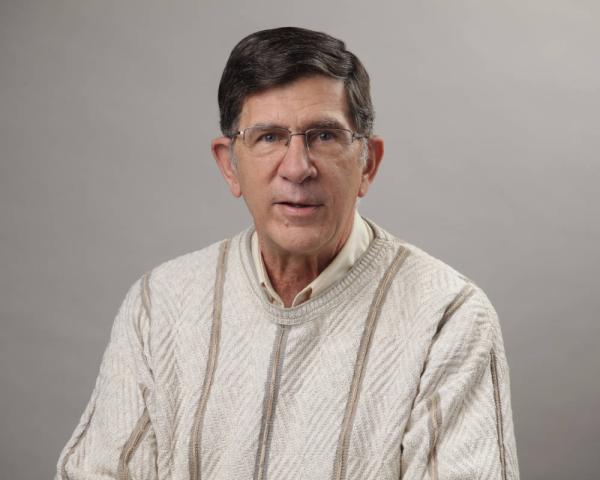
David Koch, PhD, DABCC, FAACC
,Interim Co-Director
Clinical Laboratories and Clinical Pathology
Grady Health System
Atlanta, GA,Director
Clinical Chemistry, Toxicology, and POCT
Grady Memorial Hospital
Atlanta, GAProfessor
Pathology & Laboratory Medicine
Emory University
Atlanta, GADavid D. Koch, Ph.D., DABCC, FAACC, is …
- Professor of Pathology in the Department of Pathology & Laboratory Medicine, Emory University, Atlanta, GA.
- Director of Clinical Chemistry, Toxicology, and Point-of-Care Testing at Grady Memorial Hospital in Atlanta.
- Certified as a Diplomate of the American Board of Clinical Chemistry and is a Fellow of the Academy of ADLM.
- Co-Director of the Postdoctoral Training Program in Clinical Chemistry at Emory.
- The immediate Past-Chair of the AACC Policy and External Affairs Core Committee, which is responsible for providing guidance to the AACC President and Board of Directors on legislative and regulatory issues of importance to the Association, advocating for and initiating policies related to these topics, and taking advantage of media opportunities that will further the cause of our Association and profession.
- A clinical chemist for over 40 years.
- A sought-after speaker on the evaluation of clinical laboratory methods, laboratory statistics, and quality control.
- Author of more than 60 articles, 12 book chapters, and over 70 abstracts and other publications.
- Past President of AACC, and Secretary of the Academy for 4 years.
- Recipient of the Outstanding Alumni Award from Purdue University.
- Recipient of the Alvin Dubin Award in August of 2019 from the Academy and AACC.
- A member of the 2022 AACC Annual Meeting Organizing Committee (AMOC).
- x
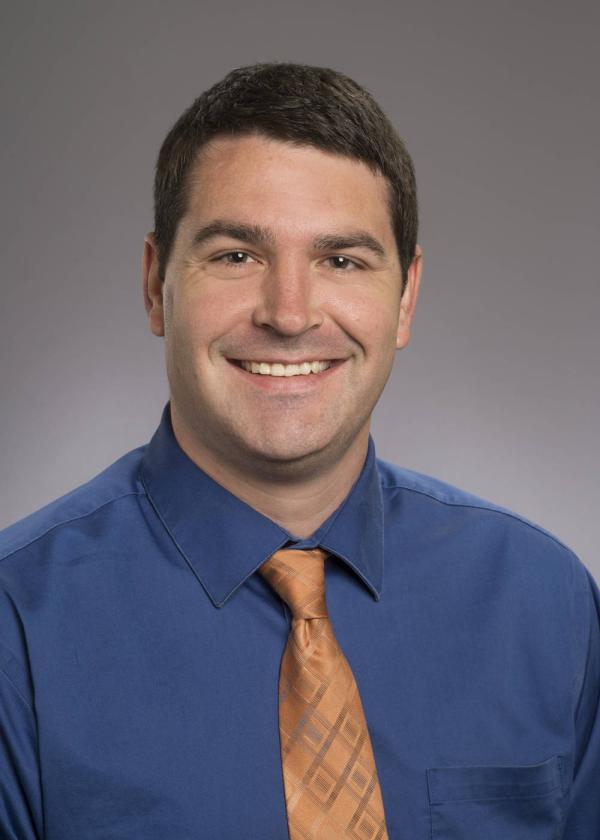
Joseph Lutgring, MD
Medical OfficerCenters for Disease Control and Prevention
Atlanta, GADr. Lutgring is a medical officer in the Division of Healthcare Quality Promotion at the Centers for Disease Control and Prevention. He is a graduate of the Indiana University School of Medicine. He has completed a residency in internal medicine and fellowships in infectious diseases and medical microbiology. He is interested in antimicrobial resistance and diagnostic stewardship.
- x
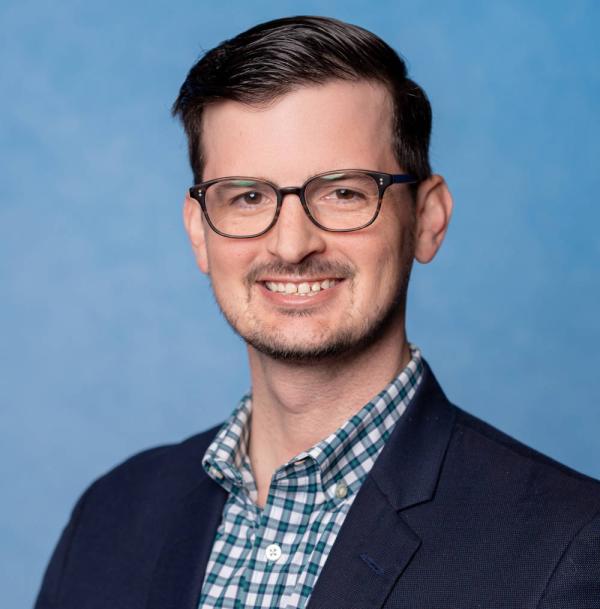
Jake D. Bunn, MLS(ASCP)CM, MBA
Clinical Laboratory ScientistCenters for Disease Control and Prevention
Atlanta, GAJake Bunn is a Clinical Laboratory Scientist supporting projects with the Clinical Laboratory Improvement Amendments of 1988 (CLIA), Quality and Safety cores of the CDC Office Of Laboratory Science and Safety's Division of Laboratory Systems. Mr. Bunn is a board-certified American Society for Clinical Pathology (ASCP) Medical Laboratory Scientist. He holds a Master's of Business Administration as well as a Lean Six Sigma Black Belt from the Georgia Institute of Technology and a Bachelor's of Science in Medical Laboratory Science from the University of Cincinnati. Before joining CDC, Mr. Bunn was the Clinical Microbiology Manager and the Laboratory System Safety Officer for Children's Healthcare of Atlanta (CHOA). In this position, he led the hospital system through the COVID-19 pandemic laboratory response. Mr. Bunn continues to work as a Microbiology Medical Technologist at CHOA on an as-needed basis. Mr. Bunn is a former laboratory accreditation inspector for the College of American Pathologists (CAP), inspecting clinical laboratories nationwide. He has also worked in laboratory technical supervisory positions at many organizations, such as a national primate research center, a cancer treatment center, and community hospitals. Mr. Bunn is a United States Air Force veteran, having served abroad during Operation Enduring Freedom and in support of the United Kingdom's Ministry of Defense and National Health Service (NHS) during the 2009 H1N1 pandemic.
- x

Jennie Ward-Robinson, PhD
Chief Executive OfficerSociety to Improve Diagnosis in Medicine
Alpharetta, GADr. Ward-Robinson is a transformational leader known for engaging diverse interests and stakeholders to produce systemic solutions to human development challenges. She has over 20 years of executive leadership within academic, multilateral, nonprofit, and for-profit organizations. Her expertise includes strategic planning, operations management, brand positioning, fund development, and delivering mission-linked outcomes. Currently, she serves as a Senior Advisor to the Dean of College and Arts and Sciences at Georgia State University, as Co-Director of the Center for Studies on Africa and its Diaspora.
Dr. Ward-Robinson is a frequently invited speaker to national and international audiences. She has been recognized as a Distinguished Alumni Award by the University of Houston at Clear Lake for her work in minority health.
Dr. Ward-Robinson successfully led initiatives in the United States, the Caribbean, Asia, Latin America, and Africa, from which peer-reviewed publications and related policy products have resulted.
Recently appointed as vice-chair of the Caribbean Philanthropic Alliance, Emory University, Rollins School of Public Health, and the Smithsonian Science Education Center, Dr. Ward- Robinson has served on various Boards, including the United States Environmental Protection Agency’s National Drinking Water Council, the Institute of Medicine Roundtable, the Alliance for Water Efficiency, and the Illinois Chapter of the Nature Conservancy among others.
Dr. Ward-Robinson holds a doctorate from the University of Wisconsin-Madison and has completed numerous executive and leadership training programs from leading institutions that include the Center for Creative Leadership and the Northwestern Kellogg School of Nonprofit Management.
Ensuring that clinicians and patients have the knowledge needed to make informed healthcare decisions is a feature of diagnostic excellence. In that clinical laboratory testing informs the majority of diagnoses, it is important for patients and clinicians to understand the uses and limitations of tests in making healthcare decisions. This challenge is further amplified through the increasing number and complexity of tests available. This session will explore the total testing process, engagement among clinicians, clinical laboratory professionals, and patients, and resources that support informed healthcare decision making. Two panels, focused on sepsis and atherosclerotic cardiovascular disease, respectively, will share practices, challenges, and opportunities for laboratory engagement as part of the strategy in addressing preventable deaths. The audience will have the opportunity to participate in the discussions, sharing their perspectives, experience, and knowledge. Attendees will learn about the laboratory’s role in the context of the healthcare team, that includes the patient, and resources that support diagnostic excellence and the diagnostic stewardship model.
Learning Objectives:
- Define two roles of the clinical laboratory that support diagnostic stewardship;
- Provide two examples of laboratory professional engagement that informs accurate and timely diagnoses;
- Cite two information resources for clinicians and patients that support decision making about clinical testing.

